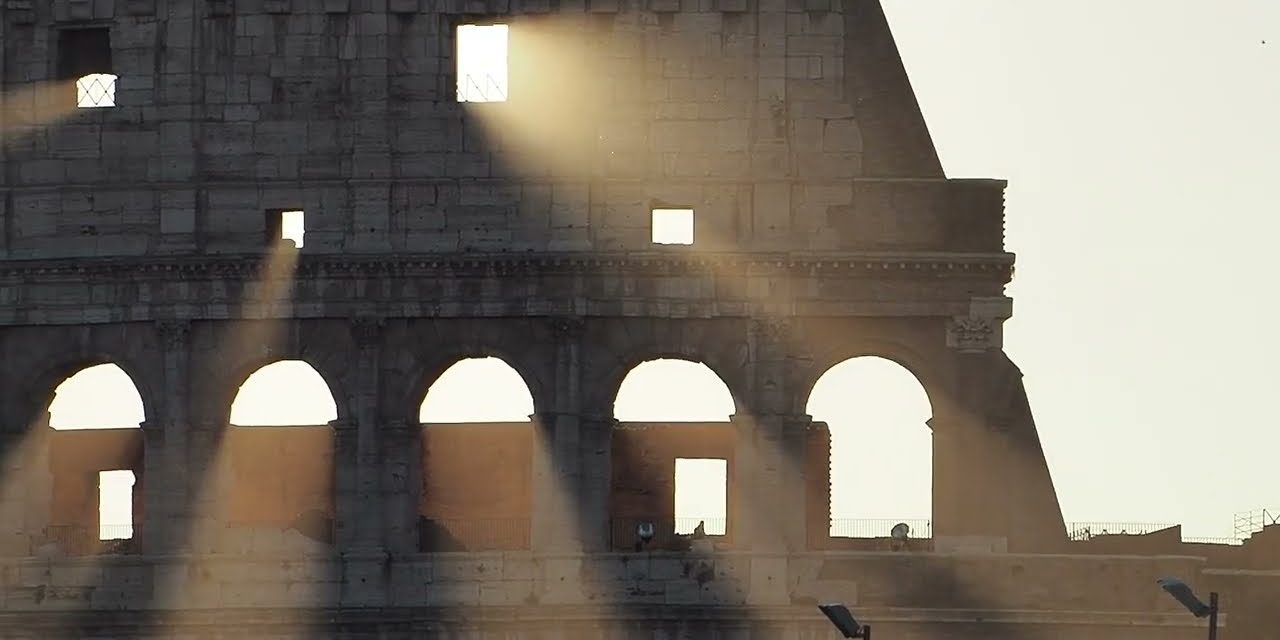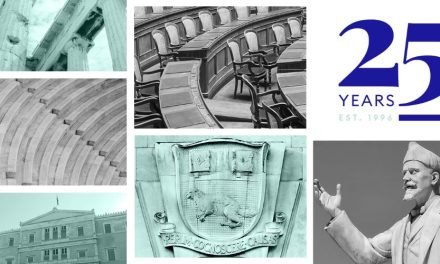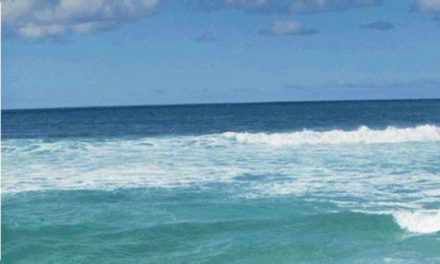The web portal Study in Greece is campaigning for the promotion and international visibility of Greek Universities and the comparative educational advantages of our country. In particular, the campaign focuses on the foreign language study programs that Greek Universities offer to Greek and international students. The initiative is supported by the General Secretariat of Higher Education of the Ministry of Education and Religious Affairs and the General Secretariat for Greeks Abroad and Public Diplomacy of the Ministry for Foreign Affairs. In this context, a number of educational programs and actions are presented in detail on a regular basis, such as undergraduate and postgraduate programs, summer schools etc, to inform international students about the many foreign language options offered by Greek Universities.

Study in Greece interviewed Professor Stelios Zerefos, Director of the MSc in Protection of Cultural Heritage and Monuments of Nature from the Effects of Climate Change offered at the Hellenic Open University (HOU), about the program, its features and what it has to offer to international students.
Stelios Zerefos is an architect and professor of the School of Applied Arts and Sustainable Design of the Hellenic Open University since 2009. He is the Director of the M.Sc. Protection of cultural heritage and monuments of nature from the effects of climate change and Director of the Lighting Design Laboratory. He has also taught graduate and postgraduate courses in other institutions including the National Technical University of Athens, the University of West Attica, the University of Athens, the ESAD Matosinhos, the Technical University of Wismar, and the Technical University of Berlin. More than 60 projects comprise his body of architectural work, seven of which have won prizes in Greek and international competitions.
Mr Zerefos, please describe to us briefly the innovative and interdisciplinary MSc Protection of Cultural Heritage and Monuments of Nature from the Effects of Climate Change.
The MSc “Protection of Cultural Heritage and Monuments of Nature from the Effects of Climate Change” is a cutting-edge and interdisciplinary online program that offers a comprehensive exploration of the challenges posed by climate change to natural and cultural heritage sites worldwide. What sets this program apart is its unique fusion of both scientific and humanistic disciplines. It combines climatology, geology, archaeology, architecture, engineering, telemetry, remote sensing, and conservation to provide students with a holistic understanding of the complex issues at hand. This multidisciplinary approach equips graduates with a diverse set of theoretical, practical, and technological skills, which are essential for addressing the critical intersection of heritage preservation and climate change adaptation.
Please explain why an international student should select the program given that it is taught in English and that the courses are online, making it very flexible.
The program’s flexibility, being taught in English and available online, makes it a compelling choice for international students. In today’s interconnected world, the ability to access high-quality education from anywhere is a significant advantage. Moreover, the online format allows students to manage their studies alongside other commitments, making it convenient for those with diverse schedules and responsibilities. This adaptability cultivates a global learning community where students from diverse backgrounds can collaborate, exchange ideas, and broaden their cross-cultural and interdisciplinary perspectives on heritage conservation and climate change, enriching the overall educational experience.

The greatest threat to ancient Greek cultural monuments and heritage sites worldwide is climate change; how can this be expected to evolve in the coming years?
The looming threat of climate change to ancient Greek cultural monuments and heritage sites worldwide is indeed a matter of grave concern. As climate change continues to accelerate, it is expected that the risks to these invaluable cultural treasures will intensify. Rising temperatures, sea-level rise, and the increasing frequency of extreme weather events are just a few examples of the challenges these sites will face in the coming years. Urgent and comprehensive action is required to protect and preserve our shared cultural heritage for future generations.
What is the contribution of this program to this immediate threat to the world’s cultural heritage?
This program plays a pivotal role in addressing the immediate threat to the world’s cultural heritage by equipping students with a unique and multifaceted skill set and knowledge base. Graduates are empowered to develop innovative and sustainable strategies for the preservation of heritage sites in the face of climate change. They become ambassadors for change, capable of collaborating with experts across disciplines and borders to implement effective solutions. The contribution of this program extends beyond education; it fosters a community of professionals dedicated to safeguarding our cultural heritage and ensuring its resilience in an ever-changing climate.
Do you believe that a European-wide initiative might be launched to establish a special fund to subsidize initiatives targeted at conserving cultural heritage sites along the Mediterranean coast that are vulnerable to erosion and floods as a result of climate change?
Establishing a European-wide initiative and fund to subsidize initiatives for conserving vulnerable cultural heritage sites along the Mediterranean coast is a commendable idea. Such an initiative would not only demonstrate a collective commitment to protecting these priceless assets but also provide a coordinated and sustainable framework for their preservation. By pooling resources and expertise, we can ensure the long-term resilience of these sites in the face of climate-related challenges. This initiative aligns closely with the mission of our program, which aims to produce professionals who can actively contribute to preserving cultural and natural heritage in a changing climate.
The Hellenic Open University is a University quite active in the field of extroversion – internationalization with various projects and alliances. How would you assess these efforts?
The Hellenic Open University’s proactive approach to internationalization is indeed highly praiseworthy. Through its various projects and alliances, the university has been successful in fostering collaboration and exchange of knowledge on a global scale. These efforts not only enhance the university’s reputation but also enrich the educational experience for students. They provide opportunities for cross-cultural learning, research collaboration, and exposure to diverse perspectives, ultimately preparing students to thrive in an increasingly interconnected world.
Read also via Greek News Agenda: Study in Greece Master of the Week: Prof Nikos Zacharias presents the Master of Science in Cultural Heritage Materials and Technologies; Climate change in the Mediterranean: two Greek research centers measure the air and explore the waters














